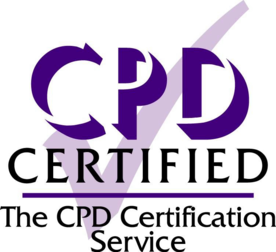

Lead the transition to sustainable, resilient, and equitable food production and supply chains.
8 weeks,
excluding orientation
7–10 hours per week,
self-paced learning online
Weekly modules,
flexible learning

This course is certified by the United Kingdom CPD Certification Service, and may be applicable to individuals who are members of, or are associated with, UK-based professional bodies. The course has an estimated 70 hours of learning.
Note: should students wish to claim CPD activity, the onus is upon them. The University of Cambridge Institute for Sustainability Leadership and GetSmarter accept no responsibility, and cannot be held responsible, for the claiming or validation of hours or points.
Over the duration of this online short course, you’ll work through the following modules:
Module 1 The rapidly changing context of food
Gain a historical perspective on the achievements and vulnerabilities of the modern food system.
Module 2 A new sustainable food future
Envision a sustainable future food system.
Module 3 New business models and approaches for sustainable food
Explore the business models and approaches that can contribute to future sustainable food systems.
Module 4 Embedding sustainability into food supply chains
Increase system awareness and value chain utilisation to achieve sustainable outcomes.
Module 5 Innovations in sustainable food production and processing
Reflect on the important role that innovation plays in achieving a sustainable food system.
Module 6 Leading transformational change in your context
Learn about the leadership skills and strategies required to drive sustainable change in your context.
Module 7 Developing your sustainable food Personal Action Plan
Develop an ambitious Personal Action Plan for sustainable transformation of the food system.
Module 8 Collaborating to create sustainable food systems
Strengthen your Personal Action Plan through collaboration with your peer network.
Please note that module titles and their contents are subject to change during course development.
1
Enhanced knowledge of the current global food system, including its history, its characteristics, its vulnerabilities, and the opportunities it holds for benefitting society and the environment.
2
An understanding of how new business models, processes, and approaches can help achieve more resilient food systems and contribute to food security.
3
Leadership skills and strategies to effectively drive transformational change and harness innovation in the pursuit of sustainability.
4
An ambitious-yet-practical Personal Action Plan to strategically lead sustainable food outcomes in your sphere of influence.
David Farrell
Chief Executive Officer, Blue North Sustainability
David Farrell is a founding partner and the CEO of Blue North Sustainability, a specialist sustainability consulting practice based in Stellenbosch, South Africa. He has worked in the agricultural sector in South Africa for more than twenty years with the last thirteen years focussed on sustainability in farming and food systems.
Since its establishment in 2011, Blue North has been involved in a wide range of sustainability focussed initiatives, including the development of the content of the Sustainable Fruit Initiative (SFI), which has become the Environmental Standard of the sustainability program for the South African agriculture sector (SIZA). Blue North manages the Confronting Climate Change Initiative (CCC) on behalf of the South African fruit and wine industries, manages the implementation of FruitLook, a satellite-based remote sensing solution, and has developed the Sherpa online sustainability management system.
David has a B.Sc. Agriculture (Horticultural Science) and a Master in Business Administration (MBA), and is a Senior Associate of the University of Cambridge Institute for Sustainability Leadership (CISL).
Martin Roberts
Former Director of Digital Learning, University of Cambridge Institute for Sustainability Leadership
Roberts joined CISL in 2008. He is an expert in digital learning, sustainability and business leadership, having worked in diverse sectors around the globe, including helping businesses and NGOs in Africa develop their own solutions to natural resource challenges. Roberts pioneered digital learning at CISL, and has a keen interest in using technology to promote learning and change. As course co-convenor, he draws on his vast experience of helping business leaders to effectively and sustainably reshape their organisations by applying innovative business models of the future.
“[...] We need food systems that protect our planet. It is possible to feed a growing global population while also safeguarding our environment. It takes sustainable consumption and production methods and nature-based solutions. It takes the smart, sustainable management of natural resources – from farms to fisheries. [...] The war on our planet must end, and food systems can help us build that peace.”
António Guterres, Secretary-General, United Nations
United Nations (Sep, 2021).
This University of Cambridge Institute for Sustainability Leadership online short course is delivered in collaboration with online education provider, GetSmarter. Join a growing community of global professionals, and benefit from the opportunity to:
Gain verifiable and relevant competencies and earn invaluable recognition from an international selection of universities and institutions, entirely online and in your own time
Enjoy a personalised, people-mediated online learning experience created to make you feel supported at every step
Experience a flexible but structured approach to online education as you plan your learning around your life to meet weekly milestones